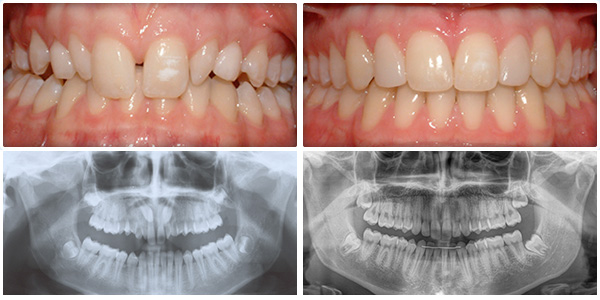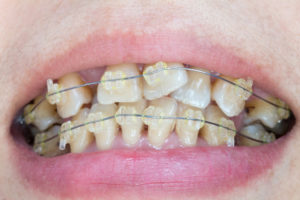
The upper and lower jaws are the foundations by which teeth are supported. Sometimes, when the jaws are too short or long, too wide or narrow, braces alone can’t completely correct a bad bite. And, in addition to affecting a person’s appearance, an improper bite can lead to serious problems, such as abnormal tooth wear, periodontal disease, and possible joint pain.
Orthodontists correct crooked teeth and bad bites. For problems related to jaw formation and misalignment (skeletal problems), an oral surgeon may be needed. When both conditions come into play, it’s common for an orthodontist and oral surgeon to work together. More information here
Some severe cases can only be corrected with a combination of orthodontics and surgery. The orthodontist, working with the oral surgeon, designs a combined treatment plan. Depending on the problem, treatment by other dental specialists may also be required.
This teamwork of the orthodontist, the family dentist and other dental specialists provides better dental health for thousands of patients who are rewarded with straight teeth, bright smiles and facial symmetry-a beautiful combination of shape, form, position and function.
What Problems Do Orthodontics and Surgery Best Correct?
There are many types of jaw development and alignment problems. Some are inherited, some are growth problems, and some are caused by an accident or other trauma.
The most commonly corrected problems include:
Which Comes First?
Most orthodontic patients undergo an initial period of orthodontic treatment to align the teeth so they will fit properly after surgery is performed. Your orthodontist and oral surgeon will schedule surgery after the teeth have been properly aligned.
Usually, braces or other orthodontic devices used to align teeth before surgery are left in place during the surgical procedure to help stabilize the teeth and jaws. After surgery there is usually an additional period of orthodontic treatment to bring teeth into their final, desired positions, complementing the new facial symmetry.
The Rewards of Treatment.
While the prospect of undergoing surgery as part of your overall treatment plan may seem daunting, it really is not uncommon. The rewards for such treatment can be very dramatic. Following completion of orthodontic treatment and surgery, you’ll enjoy better dental health and have a better facial appearance. Best of all, you’ll have a more beautiful smile that reflects a healthier, happier you for the rest of your life. Please visit this website
